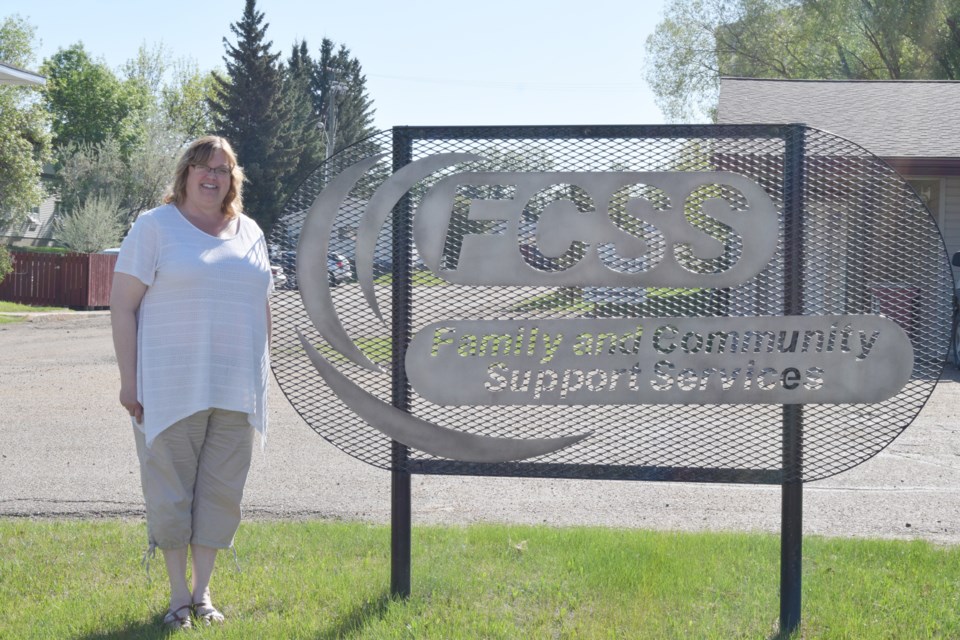BARRHEAD-Sometimes the numbers don't tell the truth or at least the whole truth.
That is what Cheri Jantz, an outreach worker for the Barrhead and District Family and Community Support Services (FCSS) Thrive said about the recent decrease in calls asking for help.
Thrive is FCSS's family violence and relationship abuse prevention initiative. It gets its name because that is what they hope its clients will do after accessing its services. Funding for the program comes from community donations.
She said in the early weeks of the coronavirus, she did not see the rise of domestic dispute and other family violence cases in late March and early April when Alberta Health Services (AHS) and public health enacted health orders requiring the closure of non-essential businesses. However, she started to see an increase in clients as they went into the summer months.
"We definitely saw a bump in our numbers, but it has calmed down again," Jantz said, adding she attributes that to several of her clients who were experiencing various types of abuse decided to leave the community.
Which is unusual in Jantz experience.
She said one of the reasons why people decide to stay in an abusive situation is that they don't feel they have the ability to leave, whether that is because of a job or other financial restraints, they don't want to leave their support systems or because they have children.
"The culture and courts of Alberta expect families to have equal access to children, which limits people fleeing from domestic abuse from leaving the community," Jantz said. "So when people decide to leave the community they must have the capacity to do so, meaning that they don't have children that they share or the situation is so significant that Children's Services and the courts are allowing them to leave."
She added because of the belief that children should be able to see the other parent, on occasion the courts have ordered the other spouse, usually the mother, to move back to their community. Statistically speaking, that majority of abusers in a spousal domestic abuse situation are male.
"The courts are put in a terrible situation with domestic violence because children need their fathers and they don't want to tear up a family, but people need to be safe. It is difficult to balance those equally important but often divergent needs," Jantz said.
Despite closing being able to close several clients files at the end of the summer, Jantz said demand for Thrive's services has been steady and is now on the rise once again.
She added while income support programs do help people who are under financial strain, the reality is that relationships are subject to stress.
"Some of it because of COVID and the added stressors that come with economic uncertainty, but a lot of it has to do with that is just the nature of their relationship," Jantz said.
She also said domestic abuse statistics are likely higher than what is reported because the pandemic could make it more difficult for victims to reach out for help, the virus could also be a motivation for people to take the first step.
"In some circumstances, it was the final straw. Now on top of everything else, we are dealing with COVID and they decide they can't juggle one more ball and they decide to leave," Jantz said. "The pandemic complicates everyone's day-to-day life, including abuse victims."
As what people should do, if they want to make that first step and reach out for help, the most important thing to keep in mind is they need to stay safe.
"If it is an emergency call 911 because getting immediate assistance is the most important factor," Jantz said.
However, if they are not in immediate crisis or danger, they can contact Jantz through FCSS at 780-674-3341. If you suspect an adult or child is being abused or neglected people can call the abuse helpline, which is run by the Alberta Supports Contact Centre at 1-855-443-5722, Monday through Friday from 7:30 a.m. to 8 p.m.



